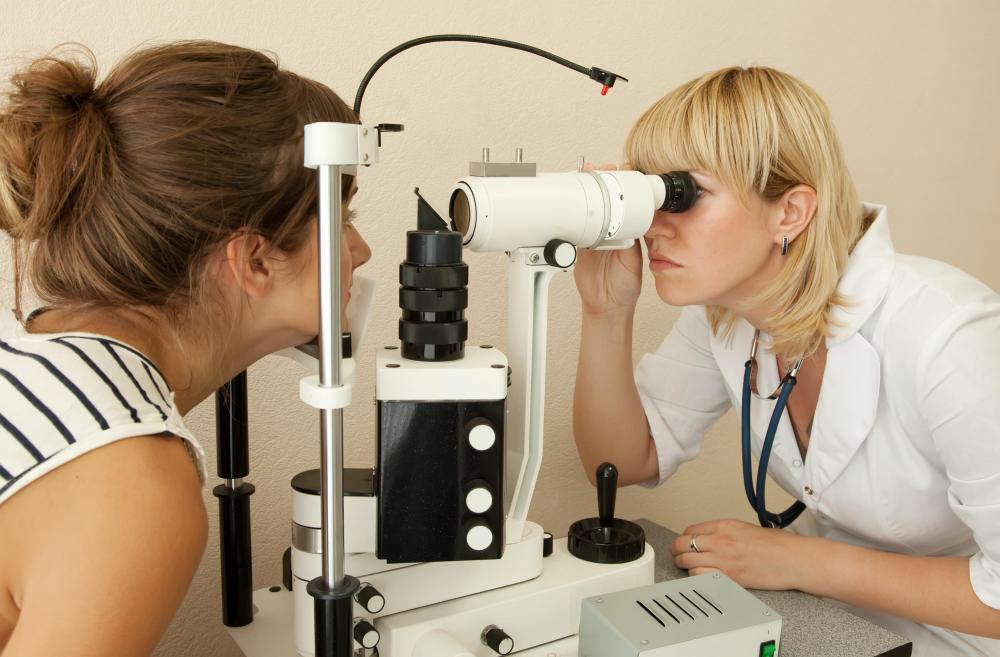At WiseGEEK, we're committed to delivering accurate, trustworthy information. Our expert-authored content is rigorously fact-checked and sourced from credible authorities. Discover how we uphold the highest standards in providing you with reliable knowledge.
What Is the Connection between Diabetes and Agent Orange?
Agent Orange is an herbicide that was used from the 1940s through Vietnam War in the 1960s, until scientists found that it contains a very dangerous dioxin. It was later suspected that people who were exposed to Agent Orange, including American soldiers, were at risk of dioxin poisoning. This can increase the risk of certain medical conditions. Some scientists even believe there is a link between diabetes and Agent Orange. The United States later set up a fund to help care for American soldiers suffering from Agent Orange effects.
Developed in the 1940s, Agent Orange is a defoliant and herbicide. When sprayed on plants, it causes them to die. One component of this herbicide is dioxin, which can cause several medical problems, some of which do not show up until years after exposure. Recently, a possible link between diabetes and agent orange has been discovered, particularly in people who spent time in Vietnam during the 1960s and 1970s.

During the Vietnam War, the United States military sprayed millions of gallons of herbicides, including Agent Orange, on parts of Vietnam. This was referred to as Operation Ranch Hand, and it took place throughout the 1960s. By spraying the jungle vegetation and crops, American soldiers were diminishing their enemy's hiding places and food supply.
By the 1970s, however, these actions ceased. It was around this time that scientists realized the health risks associated with herbicides like Agent Orange. Dioxin poisoning had begun to take its toll on residents of this area. Birth defects and miscarriages became more common, for instance, and the number of people suffering from skin diseases, cancers, and other medical conditions increased. It wasn't until several years down the road that scientists began to see the connection between other diseases like diabetes and Agent Orange.

After Agent Orange exposure, this dangerous chemical begins to accumulate in the fatty tissues of the body. Dioxin is a very stable chemical compound, with a very long half life, so it stays in a person's body for a long period of time. The accumulation of this chemical in the fat molecules could have an effect on how much insulin the body produces or how the body uses insulin. When the body does not produce enough insulin, for instance, sugars are not broken down properly, which can lead to type II diabetes.

In 1991, the United States Congress passed the Agent Orange Act, which stated Vietnam War veterans who were diagnosed with medical conditions stemming from Agent Orange exposure would be treated and compensated. Diabetic veterans who were exposed to Agent Orange qualify for medical care courtesy of the United States government. The act also calls for continued study of the issue, including the link between diabetes and Agent Orange. Today, dioxin is now known to increase the risk of several types of serious medical conditions, including Hodgkin's disease, Parkinson's disease, heart disease, and several types of cancer, along with type II diabetes.
AS FEATURED ON:
AS FEATURED ON:















Discussion Comments
@donasmrs-- Actually, only type 2 diabetes is on the list of condition caused by agent orange. So a veteran with type 1 diabetes cannot apply for compensation of their treatment. It's one of 11 diseases caused by agent orange.
I actually see a problem with this because in some people type 2 diabetes does proceed to type 1 diabetes if the pancreas stops producing insulin. So maybe they should put type 1 diabetes on the list as well. Type 1 diabetes doesn't always occur from childhood. It can develop in adulthood as well. Sometimes, someone may have type 2 diabetes for some time and never have it diagnosed until it has turned into type 1 diabetes.
From what I read, the relationship between diabetes in Vietnam veterans ad agent orange isn't very strong. The study that established a connection between the two was done on a group that worked at plants where agent orange was produced. So their exposure was much greater than what most Vietnam veterans were exposed to.
But diabetes is still on the list for diabetes compensation for veterans and that's definitely a good thing. In the future, if it is discovered that there is a stronger link between diabetes and agent orange than what was initially thought, we don't want our veterans to be refused medical care because of that. So diabetes (type 1 or 2) is definitely something that Vietnam veterans should get tested for.
I can't believe that such a dangerous chemical was used in war. It's one thing to fight the enemy, it's another to use something that affects everyone, including civilians and US soldiers themselves. As far as I know, agent orange has been banned across the globe and I'm glad. There has got to be rules about war. I'm sure that diabetes is the least worrisome side effect agent orange had or continues to have on those who were exposed to it.
Post your comments